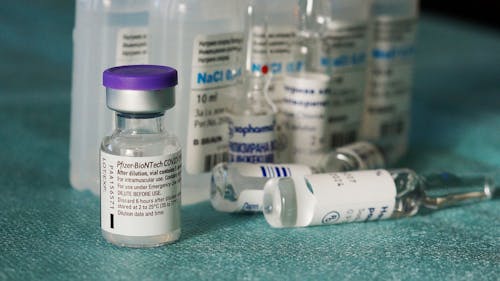Coronavirus cases in fully vaccinated individuals are extremely rare, NJ Department of Health finds

Between Dec. 15, 2020 and April 23, the New Jersey Department of Health (DOH) identified 1,319 coronavirus disease (COVID-19) breakthrough cases, instances when fully vaccinated individuals test positive for COVID-19, said Commissioner Judith Persichilli at a press conference on Wednesday.
The number of breakthrough cases represents 0.06 percent of the 2.2 million individuals who were fully vaccinated during this time frame, according to a press release. This means that 99.94 percent of individuals did not test positive for COVID-19 after being fully vaccinated, making breakthrough cases extremely rare.
“COVID-19 vaccines are a critical tool to bring the pandemic under control,” Persichilli said. “No vaccines are 100 percent effective at preventing illness, so some cases among fully vaccinated individuals are expected.”
In addition, she said that the fully vaccinated individuals who did test positive for COVID-19 faced less severe illness, with a small number of hospitalizations and deaths being recorded.
The DOH found that out of the 1,319 breakthrough cases identified, 92 of these individuals were hospitalized, though only 30 of these hospitalizations were reported to be related to COVID-19, Persichilli said. Additionally, 14 deaths were reported among the breakthrough cases, with only seven reported to be related to COVID-19.
“It is important to note that, over the same time period, there were approximately 3,500 (COVID-19-related) deaths in New Jersey,” DOH Communicable Disease Service Medical Director Edward Lifshitz said. “So (approximately) 14 out of 3,500 deaths in this time period were in people who were fully vaccinated.”
He also said that even though breakthrough cases were seen across all eligible age groups, hospitalizations and deaths were only reported in individuals over the age of 50, and those over 80 made up nearly half of the COVID-19 hospitalizations and deaths. Additionally, 20 of the 30 hospitalized individuals had underlying conditions, according to the release.
Lifshitz said that 505 individuals reported symptoms, and 377 had no symptoms, with no information available on the remaining 437 individuals. Since those with no or mild symptoms are unlikely to get tested for COVID-19, he said the data may be an underrepresentation, though still reassuring.
Another study, completed by two researchers at the Hackensack Meridian Health network, found that out of 26,000 fully vaccinated health care workers, only 138 tested positive for COVID-19, and none became seriously ill, according to the release.
“This data shows us overwhelmingly that these vaccines work,” Persichilli said. “It also suggests the COVID-19 vaccines approved for use in the U.S. offer protection against most COVID-19 variants that are circulating. (But) variants circulating in the state may cause some of the breakthrough cases.”
While the vaccines may not be perfect, Lifshitz said they are pretty close and are saving the lives of many.
“Out of a million (fully vaccinated) people, 602 would test positive, 42 per million would be hospitalized, 6 per million would end up dying from any cause,” he said. “To kind of put that number in perspective, in their lifetime, about 885 people per million will drown, 395 per million will choke to death and 7 per million will be killed by lightning. So not directly comparing apples to apples, but just kind of putting the risk of dying from (COVID-19) is extremely small.”



